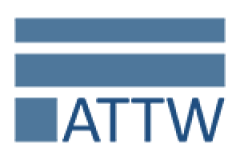Celebrating 45 years of ATTW in Kansas City, Kansas
Precarity and Possibility: Engaging Technical Communication’s Politics
Natasha Jones & Blake Scott, University of Central Florida,
Program Co-Chairs
ATTW Conference Schedule & Program (updated 3/2/2018)
Register for ATTW 2018 Two-Day Conference
Join/Renew ATTW Membership
Lodging Travel Program Chairs’ Statement
The 2018 ATTW conference will celebrate its 45th anniversary in Kansas City, Kansas with a two-day conference on March 13-14, 2018 at the Reardon Convention Center. The conference will begin Tuesday morning and go through Wednesday evening, and we will have receptions both evenings. More information coming soon!
Lodging
Hilton Garden Inn (Kansas City, Kansas)
(located next door to the Reardon Convention Center)
520 Minnesota Avenue
Kansas City, Kansas 66101
Tel: +1-913-342-7900
Fax: +1-913-342-7901
A block of rooms has been reserved for March 12, 2018 – March 15, 2018. Use this link to reserve a room or you may also call and use code: ATTW to reserve a room. The special room rate ($109.00) will be available until February 14th or until the group block is sold-out, whichever comes first.
Hilton Garden Inn offers free self-parking and complimentary Wi-Fi along with shuttle service within the local area including the Kansas City Convention Center’s Bartle Hall (located approximately 2.5 miles away).
Travel
The closest airport is Kansas City International Airport (MCI), which is located approxinately 20 miles from the Reardon Convention Center and Hilton Garden Inn. Other maps and driving directions can be found here.
Conference co-chairs Natasha Jones (natasha.jones@ucf.edu) and Blake Scott (bscott@ucf.edu), both at the University of Central Florida, Department of Writing & Rhetoric wrote a fantastic Call for Proposals and the following statement regarding the 2018 ATTW Conference:
Program Chairs’ Statement
In early August 2017, the national office of NAACP—founded in 1909, the nation’s oldest civil rights organization—issued its first-ever statewide travel advisory for the state of Missouri. Following the lead of the Missouri NAACP, this advisory warned “African American travelers, visitors and Missourians to pay special attention and exercise extreme caution when traveling throughout the state given the series of questionable, race-based incidents occurring statewide recently” (including Senate Bill 43 [which became state law] but also racist university and policing practices, the latter documented by the state attorney general’s study that found black drivers were stopped by police at a rate 75% higher than white drivers). It is not difficult to connect this travel advisory to other recent actions in Missouri, including the protests (and backlash against them) over racial biogtry and administrative inaction at the University of Missouri,[i] the Ferguson protests after Michael Brown’s death and the acquittal of the white police officer who killed him, and the protests in St. Louis after the acquittal of another white police officer who shot and killed Anthony Lamar Smith (during which police officers in riot gear re-appropriated the activist refrain “Whose streets? Our streets”). Like St. Louis and the area surrounding it, Kansas City, Missouri is widely known for having one of the deadliest police forces in the country[ii]. Further, the NAACP Missouri travel advisory can be contextualized along a longer history of racism in a state said to be “at the heart of the country’s recent racial tensions”[iii]. Examples of Missouri’s longer history of racism include (but are not limited to) the second highest rate of lynchings (after Oklahoma) of any state outside of the deep South, the bombings of black homes in Kansas City in the early 1920s[iv], and racial housing discrimination in Kansas City and St. Louis (with St. Louis being the fifth most racially segregated of the U.S.’s 100 largest cities[v]).
Beyond Missouri, the NAACP travel advisory can be read against the backdrop of a broader climate of national injustice where racism is emboldened by the subtle and not-so-subtle racist dog whistles of political leaders, the national deterioration of civil rights, militarization of law enforcement, criminalization of immigrants, and continued growth of the prison industrial complex. In short, the precarity of racism (along with and intersecting with those of misogyny, homophobia, transphobia, xenophobia, and ableism) is both ubiquitous and pronounced at specific times and places. This dual nature of precarity calls for corresponding widespread collective action and more localized, situated responses. This exigency for localized and anti-racist action, and our commitment to social justice (defined below) have informed our collaboration with the ATTW executive committee to create an inclusive conference where people can feel safe and valued in coming together to exchange ideas, learn with, and advocate for one another. With this goal in mind, we assert that embodied safety, especially of those who are most vulnerable, must be prioritized. Because our call for inclusion and social justice must be demonstrated through our material, economic, intellectual, and embodied actions, we, along with the ATTW executive committee, seek to show, through our embodied commitment, a solidarity with our members targeted by discrimination and oppression. As such, the decision to hold this year’s ATTW conference at the Reardon Convention Center in Kansas City, Kansas, rather than in Missouri, is an enactment of our localized, social justice action. Further, we value the commitment to inclusion by scholars and colleagues across disciplines and we see productive connections between this ATTW conference and the important work being done by the CCCC Task Force on Social Justice and Activism.
[iii] http://www.huffingtonpost.com/entry/ferguson-mizzou-missouri-racial-tension_us_564736e2e4b08cda3488f34d
[iv] Schirmer, S. L. (2002). A city divided: The racial landscape of Kansas City, 1900-1960. Columbia: University of Missouri Press.
Important due dates:
Deadline has passed: ATTW 2018 Graduate Research Awards (due January 20, 2018)
Deadline has passed: ATTW 2018 Research Methods Worshops Call for Applications (due January 30, 2018)
Deadline has passed: ATTW 2018 Amplification Awards (due January 30, 2018)
